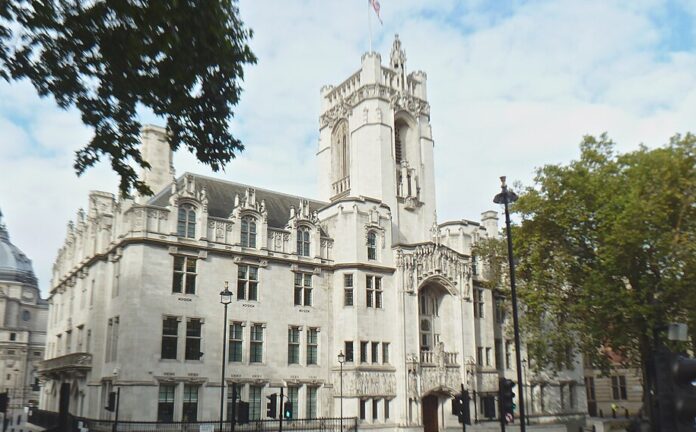Hospitals and GP practices must align with the court ruling defining ‘woman’ by biological sex, EHRC warns
The NHS has been warned it must urgently rewrite its policies on single-sex spaces following a landmark Supreme Court ruling that redefined “woman” under the Equality Act 2010 as referring to biological sex.
The Equality and Human Rights Commission (EHRC) has put the health service on notice, saying it “must change” existing guidance or face enforcement action.
The current NHS policy in England allows trans people to be accommodated based on their gender identity—how they dress, identify, and use pronouns. But Wednesday’s Supreme Court judgment has invalidated that approach, meaning policies that prioritise self-identification over biological sex are no longer lawful.
Speaking on BBC Radio 4’s Today programme, EHRC chair Kishwer Falkner said: “There is no confusion as of yesterday, at 10.30 in the morning. They [the NHS] now have clarity. They have to change it.” She confirmed the EHRC would pursue the matter if the NHS failed to act.
Sources told The Guardian that legal teams and facilities managers across NHS England are hastily reviewing the implications for same-sex hospital wards, GP practices, and public toilets. With the NHS overseeing 25 million square metres of real estate and facing a £14bn repairs backlog, implementing physical changes could prove logistically and financially challenging.
In a statement, NHS England confirmed: “The NHS is currently reviewing guidance on same-sex accommodation and, as part of this process, will consider and take into account all relevant legislation and [Wednesday’s] ruling.”
Meanwhile, British Transport Police became the first public body to act on the judgment, announcing that trans women will now be searched by male officers and trans men by female officers, based on their biological sex.
Previously, officers were instructed to carry out searches according to an individual’s acquired gender if they held a gender recognition certificate. That policy is now in question as legal challenges from gender-critical campaigners move forward.
Lady Falkner also revealed that the EHRC will release a new statutory code of practice by summer, ensuring that future guidance will carry legal authority. “It will be interpreted by courts as the law of the land,” she said. The updated code will apply to all public services, including healthcare, prisons, and sports.
Despite the hardline stance on single-sex services, the EHRC clarified that discrimination and harassment against trans people remain illegal. Trans women can still bring equal pay claims and seek protection under existing anti-discrimination laws.
Politicians have responded cautiously. In Scotland, Labour leader Anas Sarwar, once a supporter of self-ID for trans people, has swung behind the Supreme Court’s interpretation. “There’s a clear ruling now… We must urgently update policies on single-sex spaces,” he said during a visit to Falkirk.
Westminster ministers, however, have largely remained silent. Chancellor Rachel Reeves dodged questions during a trip to Scunthorpe, saying only that further advice would be issued “in due course.”
Kemi Badenoch, the Conservative equalities spokesperson, seized on the decision, calling it a victory for her party’s stance. She hinted at further reforms to the Equality Act and the Gender Recognition Act. “These laws were written 20 years ago when the world was different,” she said.
One unresolved issue is the provision of public toilets for transgender people. A directive issued by Badenoch last year requires new public buildings to prioritise single-sex toilets and allow unisex facilities only when space allows, raising concerns about access for trans users in future developments.
As legal clarity hardens, institutional confusion grows. The NHS now finds itself at the epicentre of a national policy reckoning, caught between legal obligation and the challenge of accommodating all patients with dignity.
BBC
The Equality and Human Rights Commission (EHRC) has warned that the NHS and other public bodies could face legal action if they do not adhere to new guidance following a Supreme Court ruling that defines “woman” as a biological sex under the Equality Act. The court found that a Gender Recognition Certificate (GRC) does not alter a person’s legal sex for the purposes of single-sex spaces. This decision has significant implications for services such as hospital wards, changing rooms, and prisons. The NHS, which previously accommodated trans people based on gender identity, is now under pressure to update its policies. The EHRC will work on new guidance, expected by summer, to ensure compliance. The UK government has welcomed the ruling, emphasising the protection of single-sex spaces, while trans rights groups have expressed concern over its impact. The ruling could also affect transgender athletes’ participation in women’s sports.
THE TELEGRAPH
Lloyds Banking Group has pledged to support its transgender staff following the UK Supreme Court ruling that defines “woman” and “sex” as biological terms in the Equality Act. The ruling has caused uncertainty, especially regarding women-only spaces and the legal rights of transgender people. Lloyds executives, including Andrew Walton and Sharon Doherty, expressed solidarity with trans and non-binary colleagues, offering support during this challenging time. Walton urged managers to be mindful of the impact on staff, reaffirming the bank’s commitment to inclusivity. However, some former employees criticised the bank’s stance, arguing that a more balanced approach should be taken, considering the strong emotions surrounding the issue.
